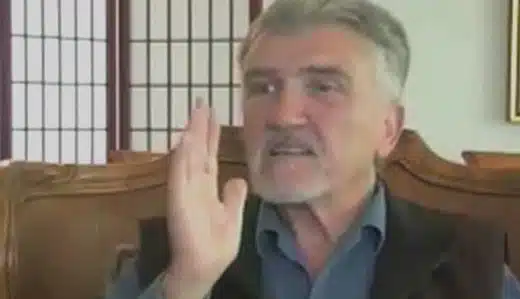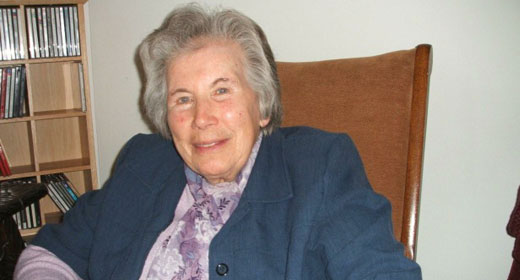By Mathew Burgess: Aubrey de Grey wants to save lives. He wants to save as many as he possibly can, as soon as he can, and to do it he is going to fix ageing…

The prominent scientist and futurologist is on a crusade to beat ageing and when he does it will mean that we stay healthy and live longer – possibly for up to hundreds of years.
But, as de Grey emphasises, his primary goal is not just making people live longer; he wants us to live healthily, he wants to restore us to a state of health that is “fully functional in every way”. The ability to live for hundreds of years is just a side effect.
“The ability to live for hundreds of years is just a side effect“
The work carried out by de Grey and his colleague at the SENS Research Foundation will ultimately raise new challenges that need to be tackled, both in medicine and society, but there is no scientific reasoning why the body, with the right treatment, cannot be healthy for much longer.
“We haven’t got the faintest idea what a 200 year old brain is going to work like but, there is currently no reason to believe that it will work any differently than a brain today,” de Grey says.
But how will he stop us ageing, and what will it mean for society?
Divide and conquer
De Grey’s plan is simple to understand but drastically difficult to make a reality, which may be one of the reasons why hordes of scientists and fans pack lecture theatres when he is due to speak. It involves providing treatments that are similar to conventional medicine to those aged around 60 or 70, which will help to rejuvenate their bodies to the state of early adulthood.
The idea of treating disease and the disabilities of old age will not be treated by one breakthrough de Grey says. It has to be broken down into a series of manageable tasks.
“We don’t really think there is going to be one particular technique that will do the job,” he explains. “We believe that the process of ageing has to be recognised as a chaotic somewhat uncoordinated set of processes such that a truly effective treatment of it is going to involve a divide and conquer approach, essentially sub-dividing the problem into a variety of types of damage that accumulate and figuring out therapies that can address each of them.”
As a small organisation, de Grey says that SENS is focusing on the areas that seem realistically achievable in the shorter term and those areas that are neglected. The first of the treatments may be ready within 20 to 25 years’ time, he predicts. Coincidentally, this will be the time when then 52-year-old de Grey is reaching the age where the treatments would be applied.
Naturally, the lucrative benefits that come with solving ageing inevitably mean that de Grey isn’t the only one hunting for the answers. In fact, the competition is very tough.
Google-founded Calico recently forged a $1.5bn agreement with drug manufacturer AbbVie to help research solutions to ageing and age-related diseases. After the announcement SENS CEO Mike Kope issued a statement saying the deal highlights the “potential astronomical scale” of an anti-ageing industry.
Supply and demand
In a world where getting old is no longer an issue, concerns will arise about population levels and resources that the planet can provide.
De Grey admits that the world will change dramatically and that the transformation will not necessarily be a smooth one. “There may be some turbulence and obviously the more we can forward plan to minimise that turbulence the better,” he adds.
One UN report, from 2003, predicts that the world’s population could increase to more than 36bn people by 2300 – and that forecast is based on regular life expectancy. If everyone is living for hundreds of years then the resources needed to sustain them would drastically increase.
“ A truly effective treatment of it is going to involve a divide and conquer approach“
But this view does not give credit to other technologies that are developing at a faster implementation rate than anti-ageing, and people can have a blinkered view about this.
“They just don’t look at the problem properly so for example, one thing that people hardly ever acknowledge is that the other new technology is going to be around a great deal sooner than this technology, or at least sooner than this technology will have any demographic impact,” de Grey says.
“For example we will have much less carbon footprint because we will have things like better renewable energy and nuclear fusion and so on, so that it will actually be increasing the carrying capacity of the planet far faster than the defeat of ageing could increase the number of people on the planet.”
Beyond biology
Looking at a future that is beyond our current lifetimes the answer to ending ageing may lie outside of the biomedical field, de Grey concedes. Other factors, such as robots and artificial intelligence, will also be playing a role in our medical treatments.
“The whole area of what you might call non-biological solutions to medical problems is an area that should certainly never be neglected and has already played a minor role in today’s medical world with things like cochlear implants or, for that matter, just glasses,” de Grey says.
“Non-biological solutions to medical problems should certainly never be neglected“
“So the question then is, will this increase? I believe it will, in fact I believe that in the very long term it is quite likely that non-biological solutions will dominate medicine simply because they can and they are more versatile.
“But I think that is going to be a long time coming. It is going to be driven largely by miniaturisation I think. It may very well be that software improvements to do with artificial intelligence, for example, will play a roll there.”
But while the long-term work continues, it will be exciting to see what de Grey – being in a hurry to stop ageing as soon as he can – achieves in the meantime.








































